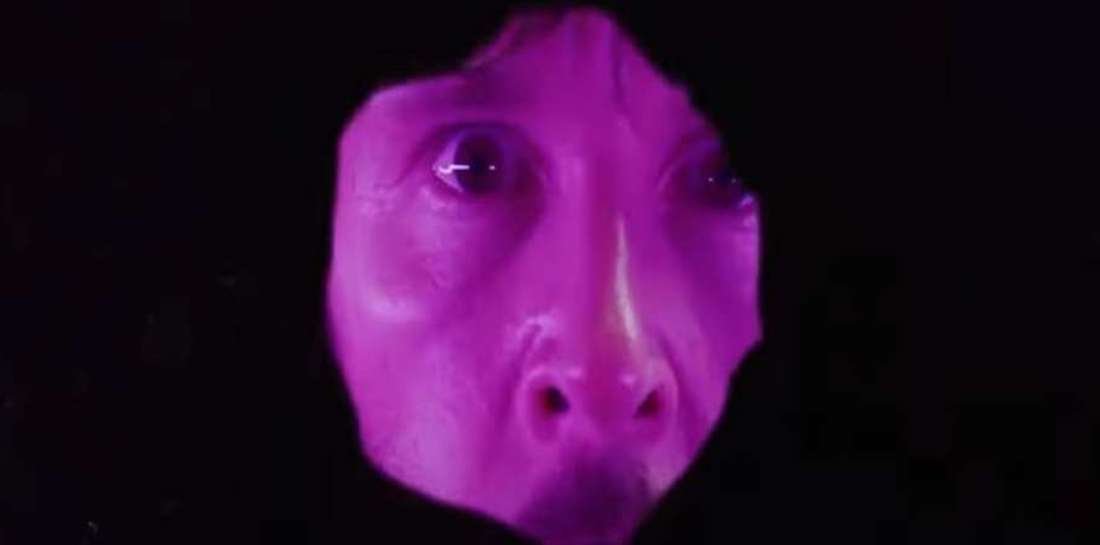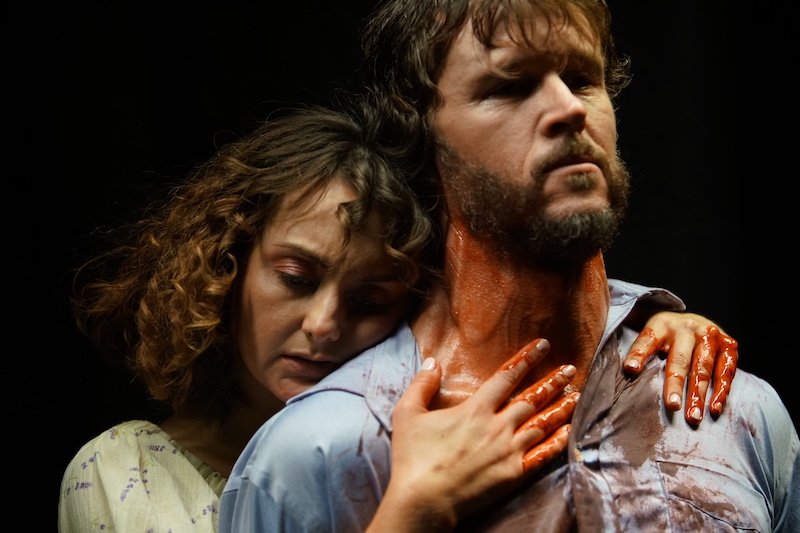Review: GLORIOUS (2022)
College improv groups are either amazing or insufferable. Usually the same troupe can be both in the course of the same performance. But they are a good training ground for young folks to absorb a particular skill set that was put forth by Elaine May, Mike Nichols, and Del Close for improvisational performances and has remained a core value in the many decades since. “Yes and…” is the mantra of both long and short form improv, the idea being that you roll with these new circumstances and add new wrinkles to them. It encourages thinking on one’s feet, collaboration, trust, and expands minds to new possibilities for stories. If, when greeted by a new situation, others simply say “no” the entire time, the story grinds to a halt and just remains in the same place it always was. There are no surprises, there are no occasions for growth, there is simply the Sisyphean motion of almost changing but then regressing.
GLORIOUS, the latest film from director Rebekah McKendry, isn’t an improvised affair. With a script by Joshua Hull, David Ian McKendry, and Todd Rigney, it’s a nice mix of cosmic horror, daddy issues, comedy, and character study. It’s an incredibly inventive premise that features excellent performances from Ryan Kwanten and J.K. Simmons, with some wildly imaginative visuals. Where GLORIOUS overlaps with improv performances is that the bulk of the movie involves Kwanten’s character simply saying no and rejecting the central premise of the entire story. Obviously it’s fine for a role to resist action and push back—that’s essentially conflict (and basically the entirety of Hamlet)—but at a certain point it’s tiresome to constantly shut down something and refuse to believe or accept a situation. It’s frustrating that the vast majority of GLORIOUS’ 79 minute runtime is one character refusing to go along with the very obvious and apparent truth that the audience accepted pretty quickly into the film.
Wes (Kwanten) is speeding along the highway, clearly distraught and seemingly haunted by a former lover. He seems sleep deprived and wracked with some horrible internal struggle.
He pulls over to a highway rest stop and proceeds to get completely shitfaced while visions of whatever disaster he’s running from flash into his head. Waking up after the riotous night, he stumbles into the bathroom where there’s a glory hole in the stall and a soothing voice on the other side of it (provided by Simmons). This voice claims to be an otherworldly creature called Ghat that needs Wes’ help in order to prevent some galactic calamity, and he can’t let Wes leave the bathroom until they work together.
Wes refuses to believe any of this and seeks to escape while Ghat plumbs Wes’ own psyche to figure out how to convince this mess of a man to save the universe.
GLORIOUS does so many things so well. Choosing a single setting to essentially have a verbal face off between Wes and Ghat makes for compelling viewing. At the film’s best, it plays like H.P. Lovecraft’s True West with these clashing personalities (who are more similar than they appear) ricocheting off each other to terrifically hilarious and dramatic ends. The design of the rest stop is perfectly dingy without being absurdly awash in squalor, while rooting it in firm contrast to the extraordinary aspects of Ghat and the plot. The creature design and otherworldly depictions are also tremendously done and show a real finesse by all involved, grounding the action in this palpably gross venue allowing for some phantasmagoric flights of fancy.
Simmons and Kwanten have great chemistry (even though Simmons is just a voice on the screen). Wes’ manic anger works well with Ghat’s deadpan seriousness, while both reveal moments of flippancy that again belies common ground. Kwanten dives into the role by flinging himself all over this crappy restroom, becoming awash in blood and gore, and exuding true cosmological dread in the face of such an event.
There’s a lot of terrific practical f/x and even some darling CG as well. I don’t know when we all agreed magenta hues were the perfect lighting colors for Lovecraftian nightmares (1986’s FROM BEYOND?), but they work exquisitely here. All of the insanely out there aspects of Ghat and Ghat’s tale are expertly married with Simmons’ all business voice and the dialogue between the two characters.
The problem lies not in the performance of Wes but in the actions of the character. Obviously it makes sense for this average person (though that comes with an asterisk) to reject this reality and wish to escape such a monstrous occasion. But this is still a story being told and that requires some inventiveness to convey such motivation. Whenever Wes discovers some new possibility for getting away from this impossible situation, that’s entertaining and reveals more character while also demonstrating Ghat’s abilities (and the filmmakers’ clever visual designs). But the issue comes in that with a taut 79 minutes, so much of it is dedicated to Wes trying the same tactics to break away over and over again. Banging against the door, screaming for help, pulling and pushing that door to no avail, screaming out a window…it becomes so tedious to keep going back to these wells.
I’m sure some will say that this is GLORIOUS embracing the reality of the situation where a person would do whatever to scramble away from a cursed bathroom.
That’s kind of fair, except it’s a bit of a cheat to say that a movie with an extradimensional godling stuck in a bathroom stall and communicating through a defunct glory hole is all that invested in “reality.”
Watching Kwanten pinball all over the restroom space works in small doses, but frequently reverting to the same actions and the same state of rejecting the moment makes these sequences in GLORIOUS feel regressive and boring when everything else about it is the opposite.
Have you ever played Pictionary or Charades with someone who just keeps guessing the same thing during a turn? Even if it’s wrong they’ll keep shouting “Toaster! Toaster! Is it toaster? Toaster!” It’s not toaster, Craig. It’ll never be toaster. The aggravation of dealing with such tunnel vision isn’t entertaining but simply frustrating and tedious.
There’s also a small matter of a “twist” towards the end that doesn’t play as well as it should because it feels too “big,” giving that running plot thread a bit of a bloated Tales From The Crypt vibe. Ghat and his whole deal is already a step out of the ordinary, so this step feels a bit like a hat on a hat. It’s depicted well by McKendry and crew, but it should be far more relatable and mundane to sell a (relatively) simple concept about Wes’ personality.
Building on top of action and character propels storytelling. True, conflict arises when the antagonist tries to stop the action that the protagonist seeks to accomplish. That’s just narrative structure 101. But when the vast majority of the tale requires someone to just shoot down something at every turn, and to do so in the exact same manner each time, it becomes monotonous. Bartleby The Scrivener isn’t the main character of that Melville story because his attitude is meant to be bizarre and inscrutable. Achilles spends most of The Iliad sitting out the action and refusing to fight, but at least there’s enough going on away from his tent to spread out those moments of decline.
Despite this narrative misstep, it’s pretty easy to recommend GLORIOUS. Again, the brilliant originality of the script, terrific execution of the production, and thoroughly engaging performances makes for a unique experience that highlights inventiveness of all involved. Using resources to their max and figuring out new ways of portraying familiar concepts are true talents that are hard to cultivate. It just would’ve been better if that same “yes and…” approach to the story had extended to most of the main character’s time on screen.





